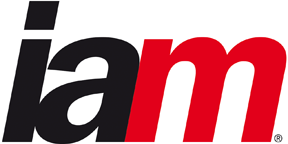by: Jacob Schindler | IAM Magazine 
On 3rd March, Texas-based Dominion Harbor Group announced plans to form a joint venture with Beijing-based Paicheng International Technology Transfer (PITT) to “expand global patent monetisation opportunities” in China. While foreign NPEs are becoming more active in the country, this appears to be the first partnership of its kind between one and a Chinese partner. In conversation last week, Dominion CEO David Pridham and Chief Strategy Officer Tom Hochstatter told IAM that the tie-up will create licensing and acquisition opportunities for the firm and its new partner.
Like many other licensing companies, four-year-old Dominion Harbor has concluded a number of licence deals with big Chinese tech companies, and worked on both sides of patent transactions. Pridham says the enlistment of a local partner is aimed in part at reaching start-ups and mid-sized companies – these smaller players are key to the business model of Dominion’s “IP Bank” initiative, which sees it buy up patents and seed them into start-ups. Those types of non-global Chinese companies are also nearly impossible to reach for a foreign entity without local help. Dominion’s executive team has worked with PITT and its president Peng Zhiyuan going back two years, and says its network of connections and access to capital will make it possible to import this model to China.
The press release says Dominion will transfer portions of its patent portfolio to the new Chinese operation. That portfolio got a lot bigger last month, when Intellectual Ventures sold around 4,000 former Kodak patents to Dominion in its biggest ever disposal. Interestingly, Pridham told IAM at the time that one of the big untapped opportunities for the Kodak assets was licensing them to Asian phone manufacturers. But he clarified that none of the assets acquired from IV are part of the China hook-up, which he said would receive five Dominion-owned portfolios with “significant coverage in Asia”.
Further acquisitions within China seem to be a big part of the rationale for the establishment of the as-yet-unnamed JV, which is slated to start operations in the second quarter. There is not much English-language information available on PITT or its parent, Shenzhen Paicheng Technology Group, but Pridham says it has access to a large capital pool and has committed significant money to funding a patent acquisition fund. “When you look at what’s on the market in China, it’s amazing,” Pridham said. “We’re looking at large portfolios for the JV to acquire, and you’ll see impressive purchases coming out of it”. An initial fund could start in the range of $25 million,” he suggested.
A few other NPEs have become more active in China over the past year, mainly in the litigation space. WiLAN launched an SEP suit against Sony last November, while Hawaii-based GPNE brought its campaign against Apple to Shenzhen after suffering a string of defeats in US courts. But Hochstatter says the linkup with Paicheng is not a litigation play, adding that there is far too much opportunity for soft licensing the larger players and partnering with start-ups. Pridham added that the maturation of the courts and the IP system in China are encouraging signs, and that the best way to approach the emerging environment is “not to make it a Wild West gold rush, but be thoughtful about it and introduce best practices”. While Dominion has been pitched on China litigation opportunities in the past, he said, the firm’s opinion remains that just as in the US, assertion is an unpredictable and inefficient form of patent monetisation.
Of course, any effort to license Chinese companies is going to rely at some level on the prospect of enforcement, inside or outside the country. The former is a lot more feasible when you have a local partner. Operating technology companies have long understood the need to be a “friend to China” if they want to do significant business there; and almost all the major ones have relationships with domestic companies. There’s a lot of uncertainty over how the Chinese government will react to the increasing number of NPEs looking to license in the country, but having local partners and startup clients that stand to benefit from any activity will definitely not be bad for business. NPEs serious about seeing a market in China would be wise to pursue tie-ups like Dominion Harbor’s in the years ahead.
Read Full Article Here in IAM Magazine
